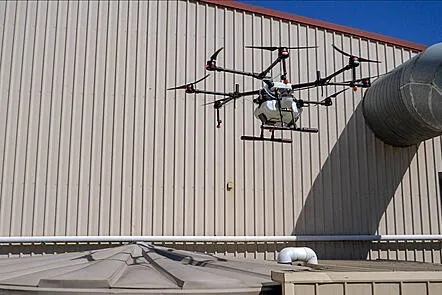
Automating Azure Workloads 
This course provides an overview of how to automate Azure workloads. It covers topics such as how to reduce IT effort, build out individual machines, and replicate environments. Participants will learn how to use automation to drive business transformation and gain a better understanding of Azure workloads. ▼
ADVERTISEMENT
Course Feature
![]() Cost:
Cost:
Free
![]() Provider:
Provider:
Edx
![]() Certificate:
Certificate:
No Information
![]() Language:
Language:
English
![]() Start Date:
Start Date:
1st Apr, 2019
Course Overview
❗The content presented here is sourced directly from Edx platform. For comprehensive course details, including enrollment information, simply click on the 'Go to class' link on our website.
Updated in [March 06th, 2023]
1. You can learn how to use Desired State Configuration, ARM templates, and run books integrated with Azure Automation to automate operational and management tasks in Microsoft Azure. This will help you save time, increase reliability and improve consistency and accuracy.
2. You can learn how to use automation and script-writing to create automatic back-ups, activate Disaster Recovery strategies in the event of downtime or infrastructure disasters, and streamline a host of other processes. This will help you reduce manual intervention and drive efficiencies in usage and consumption.
3. You can learn how to use Azure to scale business functions accordingly, based on peak and non-peak times and usage patterns. This will help you reduce manual intervention and drive efficiencies in usage and consumption.
4. You can learn how to use Azure to reduce IT effort and propel business transformation. This will help you save time and increase reliability.
[Applications]
The application of this course is to help organizations automate their Azure workloads. After completing this course, users will be able to use technologies such as Desired State Configuration, ARM templates, and run books integrated with Azure Automation to save time, increase reliability, and improve consistency and accuracy. Additionally, users will be able to use automation and script-writing to create automatic back-ups, activate Disaster Recovery strategies, and streamline a host of other processes. This will help organizations reduce manual intervention and scale their business functions accordingly.
[Career Paths]
1. Azure Automation Engineer: An Azure Automation Engineer is responsible for designing, developing, and deploying automation solutions for Azure cloud-based applications. They must have a deep understanding of Azure services and be able to develop scripts and automation solutions to manage and maintain Azure environments. They must also be able to troubleshoot and debug automation solutions. This role is becoming increasingly important as organizations move to the cloud and need to automate their processes.
2. Azure DevOps Engineer: An Azure DevOps Engineer is responsible for designing, developing, and deploying applications on the Azure platform. They must have a deep understanding of Azure services and be able to develop and deploy applications on the platform. They must also be able to troubleshoot and debug applications. This role is becoming increasingly important as organizations move to the cloud and need to develop and deploy applications on the platform.
3. Azure Solutions Architect: An Azure Solutions Architect is responsible for designing, developing, and deploying solutions on the Azure platform. They must have a deep understanding of Azure services and be able to develop and deploy solutions on the platform. They must also be able to troubleshoot and debug solutions. This role is becoming increasingly important as organizations move to the cloud and need to develop and deploy solutions on the platform.
4. Azure Cloud Security Engineer: An Azure Cloud Security Engineer is responsible for designing, developing, and deploying security solutions for Azure cloud-based applications. They must have a deep understanding of Azure services and be able to develop security solutions to protect Azure environments. They must also be able to troubleshoot and debug security solutions. This role is becoming increasingly important as organizations move to the cloud and need to secure their applications and data.
[Education Paths]
1. Bachelor of Science in Computer Science: This degree path focuses on the fundamentals of computer science, including programming, software engineering, and computer architecture. It also covers topics such as artificial intelligence, machine learning, and data science. This degree path is becoming increasingly popular as automation and artificial intelligence become more prevalent in the workplace.
2. Bachelor of Science in Information Technology: This degree path focuses on the application of technology to solve business problems. It covers topics such as systems analysis, database design, and network security. This degree path is becoming increasingly popular as organizations look to leverage technology to improve their operations.
3. Master of Science in Artificial Intelligence: This degree path focuses on the development of artificial intelligence systems and their applications. It covers topics such as machine learning, natural language processing, and computer vision. This degree path is becoming increasingly popular as organizations look to leverage AI to improve their operations.
4. Master of Science in Data Science: This degree path focuses on the analysis of large datasets and the development of data-driven solutions. It covers topics such as data mining, machine learning, and predictive analytics. This degree path is becoming increasingly popular as organizations look to leverage data to improve their operations.
Course Provider

Provider Edx's Stats at AZClass
Discussion and Reviews
0.0 (Based on 0 reviews)
Explore Similar Online Courses

Drone Safety for Managers (Latin America)

Learn Python with Google Colab - A Step to Machine Learning

Python for Informatics: Exploring Information

Social Network Analysis

Introduction to Systematic Review and Meta-Analysis

The Analytics Edge

DCO042 - Python For Informatics

Causal Diagrams: Draw Your Assumptions Before Your Conclusions

Whole genome sequencing of bacterial genomes - tools and applications

Microsoft Azure Online Data Engineering Training

Cloud Developer using Microsoft Azure

Microsoft Azure Certification
 Related Categories
Related Categories
 Popular Providers
Popular Providers
Quiz
 Submitted Sucessfully
Submitted Sucessfully
1. What is the main purpose of automation in Azure?
2. Which of the following is not a technology used in Azure Automation?
3. What is the main benefit of using automation in Azure?
4. What is Azure Automation used for?
Correct Answer: It is used to automate operational and management tasks in Microsoft Azure.


Start your review of Automating Azure Workloads